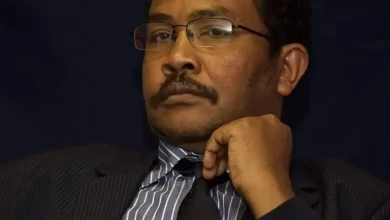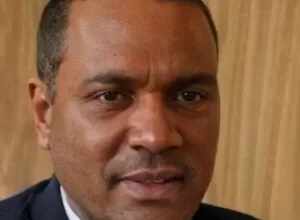The Faltering State and the Appointment of Transients

Kamil Idris as President. !
Dr. Al-Waleed Madibou
“The crisis lies in the fact that the old is dying and the new has yet to be born; in this vacuum, a number of disease-related make themselves known.”
~Antonio Gramsci
The crux of the issue isn’t particularly about who was appointed or dismissed, but rather about the absence of a standard by which appointments are judged, about the fragility of the logic that justifies dismissals, and the utter disregard of those in charge for the nature of the situation and the danger of betting on a mirage.
The appointment of Dr. Kamil Idris as head of the de facto government can only be contemplated within the context of the state of institutional confusion, political turmoil, and the moral vacuum through which what remains of the center of power in Port Sudan is being managed.
The latest developments are no more than a crude expression of a State whose extremities (margins) are eroding and whose core is withering away, believing that patching up legitimacy with new faces is possible as long as the facade covers up the fragility of the structure. However, such appointments only serve to perpetuate the situation, as they are based on prestige rather than tact, on concerns for control rather than the foundations of reform, and on appeasing regional lobbies rather than understanding the nature of the current situation and the conditions for overcoming it.
From this perspective, the appointment of Dr. Kamel Idris cannot be regarded as a beginning, but rather a new act in the theater of camouflage. Following the dismissal of an acting Prime Minister who served only a few weeks -supposedly- due to so-called “regional rejection” of him due to his Brotherhood background, Kamel Idris is now being pushed to the forefront. Nevertheless, this doesn’t address the legitimacy crisis; rather, it deepens it. The appointment of a figure who has no connection to the national movement, the demands of the revolutionaries, or the lived reality appears to be yet another step in the policy of “patching things up.”
However, the essence of the crisis in Sudan relates less to the capabilities of individuals than to the absence of institutions. Established countries, no matter how modest the talents of those who lead them (actors, athletes, broadcasters, singers… etc.), are based on systems and structures that ensure disciplined and clear foundations for political decision-making. In Sudan, the absence of this structural framework renders any appointment or change, no matter how well-intentioned, to the level of being an adventure in a vacuum. Without a strong institutional structure that regulates the relationship between the government and society and establishes standards of competence and accountability, the State will continue to be governed by reactions rather than vision, and crises will continue to reproduce themselves rather than be resolved.
The aforementioned situations are bred into existence because Sudan cannot be built through superficial reforms or decorative adjustments, nor through “vague figures” who have no weight in the public consciousness and no impact on the national trajectory. What Sudan -actually- needs are genuine reforms that redefine the State, not as a tool of domination, but rather as a moral, philosophical, and intellectual value, in which the people redefine themselves as a single political community, not as tribes vying for spoils.
In conclusion, Kamel Idris deserves congratulations and wishes for his success. Despite the controversy that has dogged him, he has relentlessly pursued the position of Prime Minister for decades, navigating every political juncture, tirelessly pursuing his ambition, in a scene that has been repeated to no avail. Today, his appointment to this position, with his international symbolism and legal background, comes within a shaky political context that lacks vision and popular or institutional legitimacy.Which -in turn- renders this appointment to the level of being the belated culmination of a long career, as if politics —in a country exhausted by absurdity— has decided, for once, to reward patience and perseverance.




